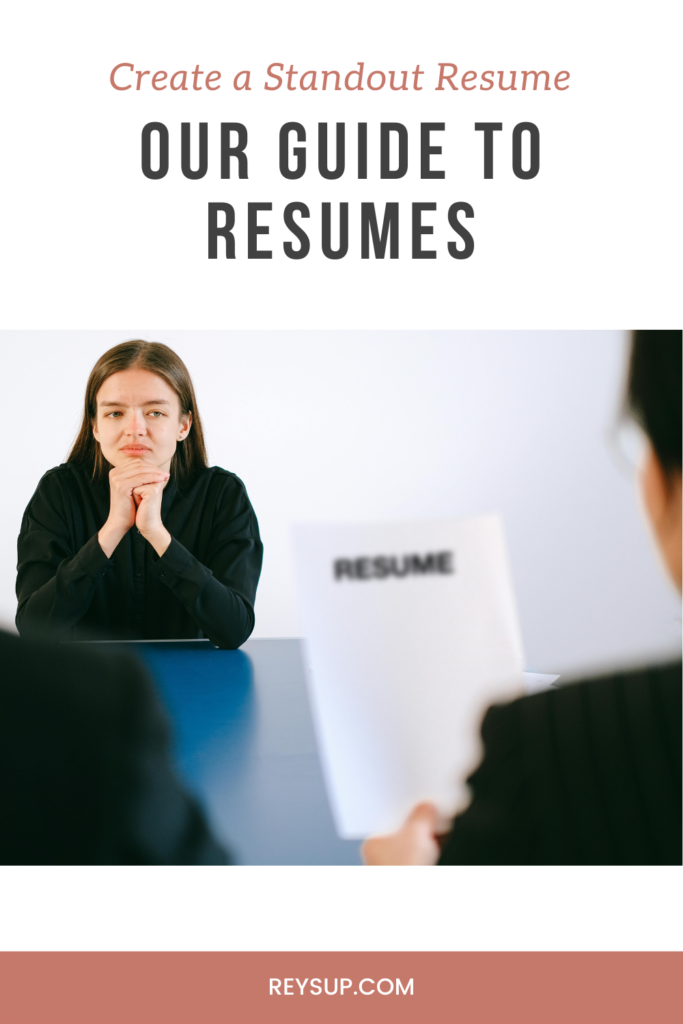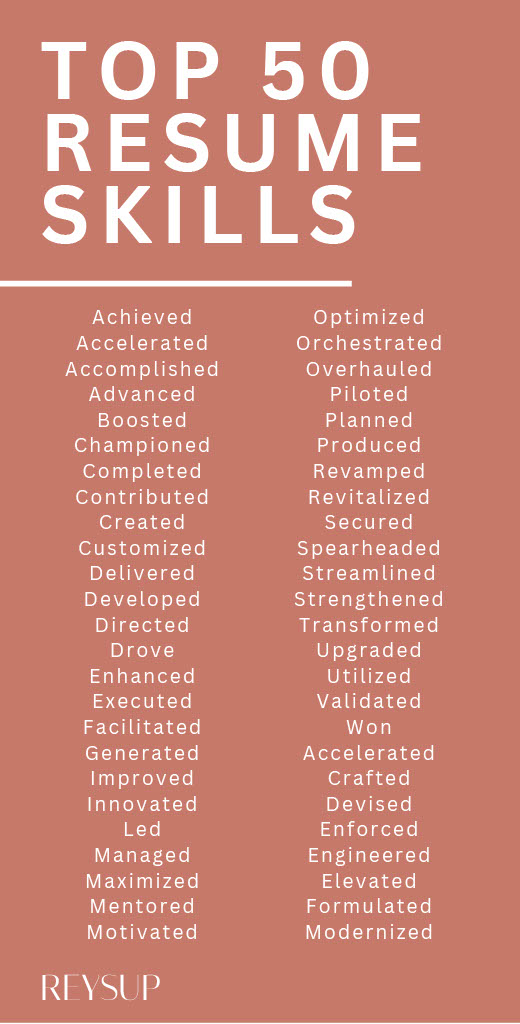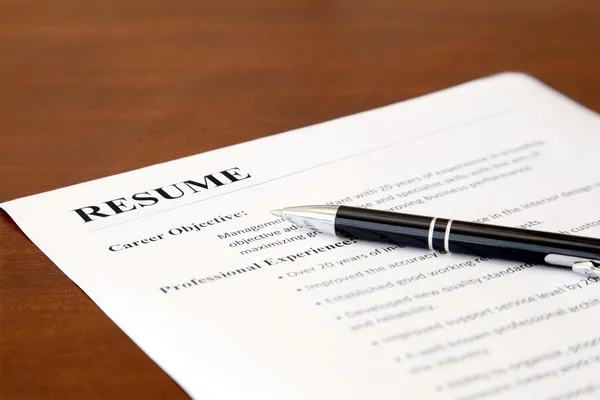In this article, we explain the do’s and don’ts of resume writing and talk about how to differentiate yourself in a pool of applicants. Read until the end to find where you can get our free resume templates.

The Do and Don’ts of Resume Writing : Why I hate resumes
I’ve always hated writing resumes. It’s awkward to write about yourself, you are perpetually running out of space, and it has to be updated every time you change jobs or roles. Not to mention, the second that I found out that the average recruiter will spend ~30 seconds looking at a resume, I was even more pissed off. All this work to write this damn document and no one is even really going to read it? Ugh. That’s why I’m writing this article on the do’s and don’ts of resume writing.
As you know, we are not ones to sugar coat things on ReysUp. We aren’t going to sit here and pretend like we love resume writing. We’d rather be drinking martinis and hanging out with friends like normal people.
But we are going to be honest with you and say that your resume is really really important. Actually, it’s probably one of the most important documents you will create in your professional career. It’s basically the single document that speaks for you when you aren’t in the room. So even if someone is only looking at it for 30 seconds, that’s 30 seconds that they are judging your ability, character, and person based on a piece of paper and not the real you. So you need to get it right.
But there is some good news for you…
- If you master the do and don’ts of resume within this article, you will probably be ahead of 90% of applicants on the market right now
- You don’t, and I repeat DON’T, need to write down everything you have ever done in your professional life. No one has time to read that and you certainly don’t have time to write that!
- The first version is the worst, but you will only have to write a resume from scratch one time. Once you cross that milestone, it’s easy sailing from there with minor tweaks and edits and you progress in your career.
Okay, let’s get right into it.

9 Dos and Don’ts of Resume Writing
Don’t lie on your resume
- I won’t spend too much time here because this should be a ‘duh’ statement. If you lie on your resume about having an experience or specific skill-set that you do not have, you will likely get caught. Maybe not in the interview, but it will probably come to head in one way or another once you are in the role and it will hurt your credibility. Also, even if you were to lie on your resume and get away with it, you’d likely find yourself in a situation where you are incapable of the task at hand and aren’t set up for success in your role. That only hurts you in the long run.
Do make sure to list every major career milestone to date
- Emphasis on the word major. If you babysat twice for the family down the street, don’t put that on your resume. For each addition, ask yourself the question ‘did this experience play a role in defining who I am as an employee today?’. If the answer is yes, it was significant, and you should add it!
Also Read 10 Items to Create the Ultimate Relaxing Work From Home Setup
Do use bullets versus paragraphs
- Because of the speed at which recruiters and hiring managers review resumes, it’s important that your resume is easy to digest. Using bullets is easier on the reader’s brain, and allows them to process the information you are telling them more effectively.

Do reference the job description and use exact words from it within your resume bullets
- When a recruiter or a hiring manager reviews a resume, they are looking for very specific experiences, skills, and competencies. The dirty little secret is that these are usually the exact same experiences, skills, and competencies written in the job description.
Do leverage the SBI framework throughout your bullet points
- SBI stands for: Situation, Behavior, Impact. It’s a good rubric to follow when you are writing resumes because it reads in a format that recruiters and hiring managers easily understand.
- In as punchy and concise language as possible, explain the situation, describe your behavior (or the action you personally took), and articulate the impact of said behavior or action to the business. Rule of thumb is that the ‘impact’ portion of the statement should include a numerical value if possible. Examples below:
- Employed solution-selling tactics to facilitate customer evaluations, resulting in +$750K in ARR via deals of $20K-$150K in size.
- Strengthened collaboration with product team by launching a quarterly ‘voice of the customer’ program, resulting in 15+ core feature enhancements scoped on the roadmap.
Don’t use big words or industry jargon
- To put it bluntly, using big words does not make anyone sound more accomplished or smarter. In fact, using big words actually creates risk, because there is a chance that 1) you don’t use the word properly or 2) the recruiter or hiring manager doesn’t understand what you are trying to say and they miss the point of your bullet entirely. Either scenario is bad!
- For this reason, I always advise my clients to write their resume bullets and then read it to a friend in another industry … or better yet an older parent or grandparent. They are your litmus test. If your friend who works in aerospace engineering or your grandma who retired 20 years ago understands what you are saying, you are in the clear.
Do be prepared to talk about gaps of 6+ months on your resume
- A common myth I hear these days is that recruiters and hiring managers don’t really care about gaps on resumes. I can’t speak for all recruiters or hiring managers, but I will say this. Never in my life have I ever met a recruiter or hiring manager who did not care about gaps. And I’ve met a lot of recruiters and hiring managers.
- Now despite the above, notice I didn’t say ‘don’t have gaps on your resume’. Having gaps on your resume is totally ok if you handle it the right way.
7 Powerful Questions to Ask Yourself To Determine If It’s Time to Quit Your Job
Ways to handle gaps on the resume:
- For gaps due to continued education and / or volunteering, I wouldn’t worry for a second. I would just list it as another career milestone like any other job.
- For gaps due to lay-offs, don’t panic. Layoffs are a common occurrence in today’s tech world, and most recruiters and hiring managers will be understanding of the situation. That said, there is an extent to the understanding. If you have a 2 year gap on your resume because you were unemployed, you may raise some eyebrows. I would say that the typical ‘get-out-of-jail-free’ period is 6-8 months. If you are nearing your 8th month of unemployment, just find any job, even if it’s waitressing at your local diner. This way, you can point to something when they ask how you were spending your time.
- For gaps due to extenuating circumstances (ie: death in the family, personal health issues), use your best judgment and only share what you feel comfortable sharing. If you are concerned about it, consider setting up some time during the initial recruiter screen to share your story. Good recruiters are trained to evaluate talent despite extenuating circumstances and most are sympathetic if you just tell them the truth.
- I usually advise my clients to copy and paste all of the bullets within the ‘required skills for the role’ section of the JD and cross as many of them off as they write a bullet point that references the skill. This way, you reduce the chances that the recruiter or hiring manager claims you don’t have a required skill.

Do show promotions within role
- I was recently chatting with my friend who works in recruiting and she shared with me that one of the things recruiters really keep an eye out for when reviewing resumes is proof that someone has grown within a single company. Showing that you started in one position and either moved to another team or got promoted to the next level shows the recruiter or hiring manager that you have a growth mindset and are capable of over-performing in a role.
Don’t add crazy graphics or non-standard fonts
- There will be a time and place to show off your personality. The resume is not it. When someone has only 30 seconds to review your document, the last thing you want them worrying about is interpreting the weird font or navigating past the unnecessary graphics. Remember – just keep it crisp, clean, and deliberate.
Conclusion
And one final word of wisdom. Do’s and don’ts of resume writing are essential to getting in the door and getting your dream job. One of the best things that you can do for yourself is start keeping a running list of accomplishments as you move throughout your career and roles. Probably the most painful part of resume writing is remembering all the things you have done! Especially if a lot of time has passed since you last applied to a job.
For this reason, keep a private note or word doc that you go into each time you achieve a milestone in your career. Jot down the date, the action you took, and the impact it drove. And while you are at it, make sure to update your LinkedIn as well. This will come in handy the next time you need to spruce up your resume and write about your latest endeavor.
And with that, I will leave you to it. Happy resume writing. If you are looking to see our thoughts on cover letters, go to our article here.
To get our free resume templates, visit our templates & resources page




